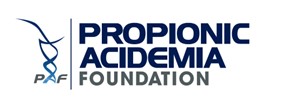PAF Awards $50,000 New Research Grant 
Ken Maclean, PhD, University of Colorado Denver
“Chemical Chaperone Treatment to Restore Enzyme Activity in Folding Mutations of Propionyl-Co-A Carboxylase: Towards a Personalized Therapeutic Strategy in Propionic Acidemia (PA)” – In Summer 2020, PAF awarded a $50,000 grant.”
Propionic acidemia (PA) is a severe life-threatening disease for which there is currently no truly effective treatment. The disease is caused by mutation in one of the two genes that code for the enzyme propionyl-CoA carboxylase (PCC). This enzyme is made up of two different proteins that fold around each other into a complex structure with six of each of these two molecules. This is a very unusual and complex structure for a metabolic enzyme and recent work in our laboratory has found that a number of specific mutations that cause PA cause problems by interfering with the protein folding and/or assembly process leading to a non-functional enzyme and thus the disease. In cells, proteins with complicated folding patterns are often assisted in their folding by other proteins called chaperones. We have observed that a number of mutant forms of PCC can be restored to normal activity if they are helped to fold correctly using these chaperone proteins. In our study, we will examine a number of chemicals that can also function as chaperones and assist with protein folding with a view towards restoring full activity in mutant forms of PCC. This work will initially occur in a bacterial PCC expression system to identify promising compounds and then depending upon progress, move into treating human PCC patient derived cells. These studies have the potential to serve as an initial first step in the rational design of a personalized medicine strategy for patients with specific mutations causing PA.
